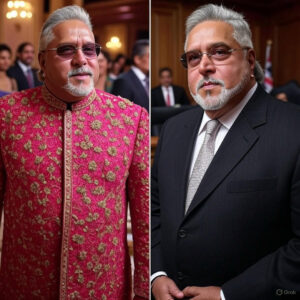Table of Contents
ToggleThe Trump Effect: Global Tensions, Trade Wars, and Shifting Alliances
The global political landscape has seen significant shifts in recent years, particularly in relation to the war in Ukraine, the involvement of various superpowers, and the controversial leadership of U.S. President Donald Trump. This article explores the complexities surrounding Trump’s stance on the Ukraine crisis, his relationship with Russia, and the broader implications for world politics.
Background of the Russia-Ukraine War
On February 24, 2022, Russia launched a full-scale invasion of Ukraine, which marked the beginning of the ongoing Russia-Ukraine war. While Ukraine was simply defending its sovereignty, Russia’s objectives appeared centered around territorial expansion and resource acquisition. The invasion rapidly escalated, with Russian forces advancing into Ukraine’s northern and eastern regions.
In response, the United States, European countries, and their allies imposed sanctions on Russia and began providing military support to Ukraine. Despite significant Western assistance, Ukraine was unable to reclaim the territories it lost, and the war became a stalemate by September 2022, with neither side making significant territorial gains.
The Shift in U.S. Policy Under Donald Trump
By 2024, the global political order was poised for a significant shift with the potential return of Donald Trump to the U.S. presidency. Trump had made bold claims during his campaign that he would resolve the Russia-Ukraine conflict within a matter of hours if re-elected. His promise to end the war seemed appealing to many, but his approach was controversial.
Trump's Proposal to Ukraine
During a meeting with Ukrainian President Volodymyr Zelenskyy in February 2025, Trump proposed an unusual deal: he suggested that Ukraine should share 50% of its natural resources and revenues with the U.S. in exchange for continued protection and military support. This was a stark departure from previous U.S. policy, and many saw it as a form of economic colonization. Critics likened it to the practices of the British East India Company, where resources were extracted under coercive terms.
Zelenskyy rejected the proposal, stating that such a deal would be devastating for future generations of Ukrainians. Trump’s response was harsh; he publicly labeled Zelenskyy a “dictator” and implied that Ukraine would cease to exist as a nation if they did not comply with his demands. This marked the beginning of an escalating political rift between the two leaders.
The Diplomatic Breakdown
The meeting between Trump and Zelenskyy in the White House quickly soured. Initially, the two leaders discussed the ongoing conflict, with Zelenskyy expressing doubts about Russia’s sincerity in ceasing fire. Despite the ongoing violence, Trump remained firm in his position that he could bring about a resolution with Putin, suggesting that his approach would be different from the diplomatic methods pursued by others.
Zelenskyy, however, reminded Trump of Russia’s history of breaking ceasefire agreements, citing at least 25 instances since 2014. Trump, seemingly unfazed, responded with an argument that many considered absurd. His dismissive attitude and aggressive rhetoric soon turned the meeting into a public spectacle, leading to a heated exchange that played out on live television.
The Economic and Political Fallout
Trump’s increasingly combative stance toward Ukraine and his proposed economic concessions sparked outrage. Critics argued that Trump was effectively leveraging U.S. power for personal and political gain, while others questioned his close ties with Russia. The episode also highlighted Trump’s willingness to engage in what many viewed as imperialist behavior, even suggesting the acquisition of territories like Greenland and the Panama Canal.
In February 2025, during a critical United Nations General Assembly vote on a resolution condemning Russia’s actions, the U.S. made an unprecedented move. For the first time in history, the U.S. joined Russia and North Korea in opposing the resolution, a decision that shocked the international community. This marked a dramatic shift in U.S. foreign policy under Trump, and the geopolitical ramifications were profound.
The Allegations of Russian Influence
One of the most controversial aspects of Trump’s relationship with Russia is the persistent allegation that he has been influenced by the Russian government. In 2019, the U.S. House of Representatives impeached Trump for attempting to coerce the Ukrainian government into investigating Hunter Biden, the son of then-Vice President Joe Biden. Trump’s actions were seen as an attempt to undermine Biden’s presidential campaign by leveraging military aid to Ukraine as a bargaining chip.
Additionally, former Russian intelligence officers have claimed that Trump was recruited by Russian agencies as early as the 1970s, when he was identified as a potential asset by the KGB under codename Krasnov. This allegation has added fuel to the fire, with some speculating that Trump’s actions as president were part of a broader Russian agenda to weaken the West.
Implications for Global Politics
The Trump administration’s policies raised fundamental questions about the future of U.S. foreign relations. Trump’s rhetoric, often compared to neo-colonialism, has sparked fears that the U.S. may adopt more aggressive tactics in its dealings with other nations. From his comments about reasserting American control over global assets to his skepticism about international institutions like NATO and the United Nations, Trump’s foreign policy could fundamentally reshape the global order.
America's Role in the World
Trump’s tendency to question longstanding alliances, particularly with Europe, and his flirtation with Russian interests reflect a broader shift in U.S. foreign policy. His idea of “America First” has been criticized as isolationist and antagonistic toward traditional allies. Furthermore, his perceived warm relationship with Russian President Vladimir Putin has raised concerns about the U.S.’s commitment to defending democratic values on the global stage.
Potential for Global Instability
Since Trump returns to power, many experts fear that the international order could become even more unstable. His approach to foreign diplomacy—characterized by transactional deals, disregard for international norms, and a focus on extracting economic concessions—could lead to increased tension and conflict across the globe. Countries like Ukraine, which have already suffered immensely due to the Russia-Ukraine war, may find themselves vulnerable to new forms of exploitation.
The ongoing tensions between Donald Trump, Ukraine, and Russia reflect the complex and evolving nature of modern geopolitics. As the war in Ukraine continues and global power dynamics shift, Trump’s potential return to the presidency could have far-reaching consequences. The world watches closely as the U.S. navigates its role in international affairs, with questions about leadership, alliances, and global security at the forefront of political discourse.

Jugaad on Two Wheels: The Hilarious Bike Parcel Hack in Karnataka
The Great Karnataka Bike Parcel Hack: A Jugaad Masterclass #RapidoParcel: In a creative yet controversial move, ride-hailing platform Rapido has found a way around Karnataka’s

Denmark’s Digital Sovereignty Revolution: Linux and LibreOffice Lead the Way
Introduction to Denmark’s Bold Move In June 2025, Denmark’s Ministry of Digital Affairs made headlines by embracing digital sovereignty, ditching Microsoft Windows and Office 365

🏏Sports as a Business Strategy: Insights from Vijay Mallya’s RCB Ownership
🧠 Sports as a Business Strategy (Tool) In modern business, few platforms offer better engagement and emotional connection than sports. From football clubs in Europe

🙏 Apologies in Leadership: Vijay Mallya Public Apology
🧠 Introduction: The Role of Apologies in Leadership In the corporate world, apologies aren’t signs of weakness—they’re strategic acts of leadership. When made with sincerity

Audiobook Production Costs: Navigating Recording Artists, Studio Expenses, and AI’s Impact
The audiobook industry is booming, with over 130 million listeners in the U.S. alone in 2021 and a growing global appetite for audio content. Producing

Media Trial of Vijay Mallya: How Public Perception Shaped Vijay Mallya’s Legacy
Introduction: Media’s Influence on Business Narratives In today’s hyper-connected world, media narratives can make or break a business reputation. For Vijay Mallya, once known as

